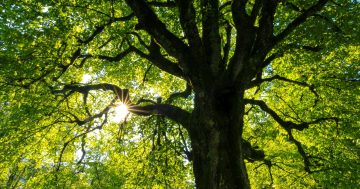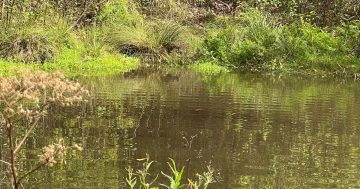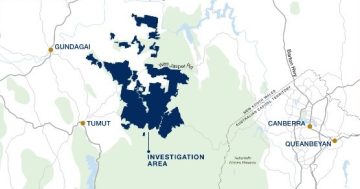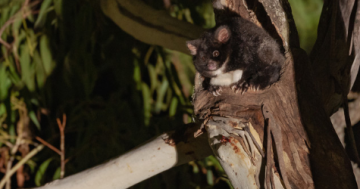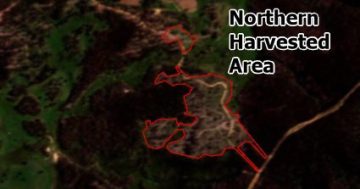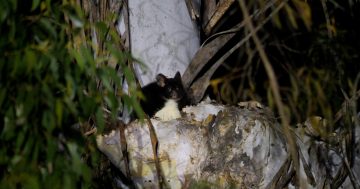
An EPA officer took this photo of the logging in Yambulla State Forest in July 2020. Photo: NSW Land and Environment Court.
Forestry Corporation of NSW (FCNSW) has been fined $360,000 after breaking conditions designed to help a Far South Coast forest recover from the disastrous Black Summer bushfires.
It pleaded guilty to committing two offences involving Yambulla State Forest, which is southwest of Eden near the Victorian border, between March and July 2020.
On Wednesday (31 July), the corporation was convicted and handed the fines by the NSW Land and Environment Court, as well as ordered to pay the NSW Environment Protection Authority’s (EPA) legal costs.
A statement FCNSW was ordered to publish said it failed to show two known ‘environmentally significant areas’ on an operational map prepared for harvesting operations in the state forest. It then harvested 53 eucalypts in one of the areas.
“The harvesting operation caused actual harm to the felled trees and impacted the refuge of various native flora and fauna species following the Black Summer bushfires,” the statement said.
“It also led to the compaction and disturbance of groundcover elements.
“The harvesting operations also potentially harmed the dusky woodswallow, scarlet robin and the varied sitella, being threatened bird species known to inhabit the Yambulla State Forest.”
The court heard about 77 per cent of the state forest was burnt during the Black Summer.
Justice Rachel Pepper said the harvesting caused “actual and potential harm” and the harm was “substantial”.
She said a mapping offence occurred due to a Forestry worker incorrectly putting spatial data into an operational map then failing to adequately review her work, before her supervisor also failed to properly check her work, despite being required to sign off on the map. The harvesting offence then occurred due to this mapping offence.
“Both mistakes were inadvertent,” Justice Pepper said.
She did find the evidence Forestry Corporation CEO Anshul Chaudhary gave to the court of the steps FCNSW had taken to prevent future similar incidents was “unhelpful given its highly generalised content”.
The judge also said “FCNSW has a lengthy record of prior convictions for environmental offences”.
EPA executive director of operations Jason Gordon said breaching the conditions in Yambulla State Forest was totally unacceptable.
“These special conditions were introduced to protect parts of the forest that weren’t as damaged by fire, giving wildlife and biodiversity an opportunity to recover,” he said.
“FCNSW contractors cut down a total of 53 eucalypt trees in an ‘unburned’ environmentally significant area that was home to important shelters and food resources for local wildlife or native plants.
“FCNSW and its contractors have a responsibility to comply with the rules, and in this case, there was a failure to mark the area off-limits in the operational map used for harvesting operations.”
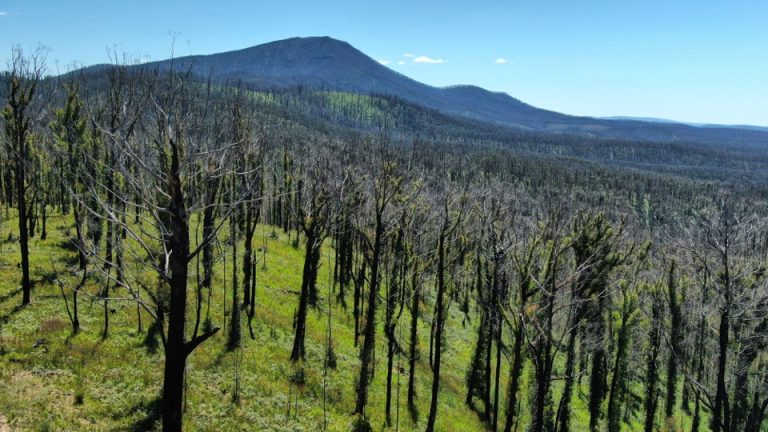
East Boyd/Timbillica State Forest, which is adjacent to Yambulla State Forest, is pictured in 2021 recovering from the Black Summer bushfires. Photo: David Gallan.
Mr Chaudhary said during the operation, his corporation “failed to protect 53 trees that should have been preserved as habitat following the 2019-20 fires”.
“This was due to human error applying a one-off condition, and we deeply regret the mistake and the environmental damage it has caused,” he said.
“To make amends, we immediately protected an alternative area of forest, and the harvested area is regenerating.
“We have since implemented measures to ensure such errors do not happen again. In our standard operations, mapping of environmentally sensitive areas into operational maps is an automated process, which eliminates the risk of human error.”
In 2022, Forestry Corporation was fined $45,000 for felling habitat trees in Mogo State Forest then was also fined $15,000 over its alleged actions in South Brooman State Forest, both near Batemans Bay.
Also, earlier this year, Forestry Corporation was ordered to pay a fine and legal costs totalling $104,000 over logging in Mogo State Forest.
Meanwhile, in May 2024, the NSW Court of Appeal found environmental groups have the right to challenge Forestry’s alleged breaches of the law, following a South East organisation’s “historic” courtroom win as part of its attempt to protect three species of glider.
Also, several environmental groups alleged the corporation had breached a rule designed to protect endangered greater gliders 188 times in state forests.
Then in June, environmental groups accused the EPA of backflipping over protections for endangered greater gliders.







